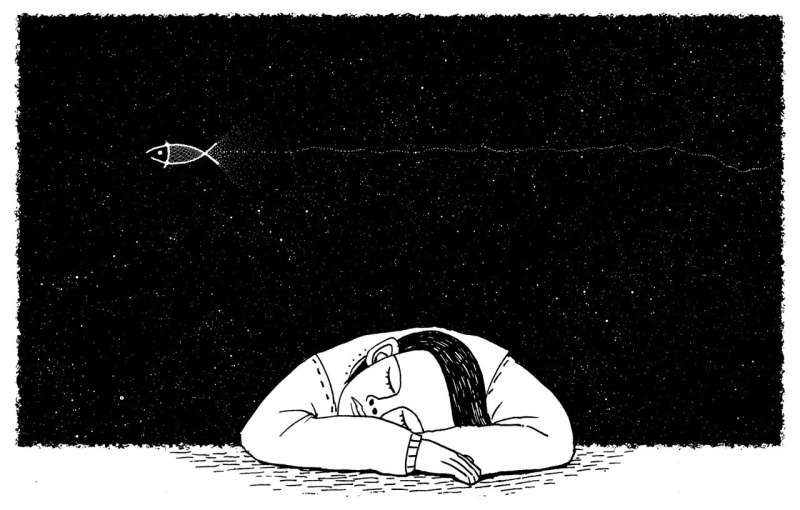This article has been reviewed according to Science X's editorial process and policies. Editors have highlighted the following attributes while ensuring the content's credibility:
fact-checked
peer-reviewed publication
trusted source
proofread
Studies show narcolepsy is a risk factor for cardiovascular disease and adverse cardiac events

Two new studies to be presented at the SLEEP 2024 annual meeting show that narcolepsy is an independent risk factor for cardiovascular disease and adverse cardiac events.
Results show that people who have narcolepsy, compared with those without narcolepsy, had a 77% increased risk of any cardiovascular disease and an 82% increased risk of major adverse cardiovascular events. Their risk of stroke was two times higher, and they also had a 64% increased risk of heart failure or myocardial infarction, and a 58% increased risk of atrial fibrillation.
In a separate analysis of the same study population that controlled for the use of stimulants, oxybates, and wake-promoting agents at baseline, as well as time-varying stimulant use, people who have narcolepsy had an 89% higher risk of cardiovascular disease and a 95% higher risk of major adverse cardiac events.
"Through a carefully designed study that integrates propensity score matching, we have uncovered compelling evidence about the relationship between narcolepsy and cardiovascular disease," said co-lead author Christopher Kaufmann, who has a doctorate in public mental health and is an assistant professor in the department of health outcomes and biomedical informatics at the University of Florida College of Medicine in Gainesville.
"Even after accounting for influential confounding factors like diabetes and obstructive sleep apnea, our findings persistently underscore the significant association between narcolepsy and cardiovascular disease," added co-lead author Dr. Rakesh Bhattacharjee, the director of pediatric sleep medicine at Rady Children's Hospital-San Diego and an associate professor of pediatrics at UC San Diego.
According to the American Academy of Sleep Medicine, narcolepsy is a central disorder of hypersomnolence primarily characterized by repeated daily episodes of an irrepressible need to sleep or lapses into drowsiness or sleep. In some cases, sleepiness manifests as sudden, irresistible sleep "attacks" that may occur in unusual situations such as eating or walking. People who have narcolepsy also may experience episodes of cataplexy, which involve the sudden loss of muscle tone with retained consciousness, along with hallucinations or sleep paralysis during the transition from wake to sleep.
The retrospective cohort studies used the 2005–2021 IBM MarketScan Commercial and Medicare Supplemental databases to identify people with a first diagnosis of narcolepsy and a comparison cohort of people without narcolepsy. Both study samples comprised 34,562 people with narcolepsy and 100,405 matched controls. The patients had a mean age of 40 years, and 62% were female.
The researchers controlled for the use of stimulants, oxybates, and other wake-promoting agents because these medications are commonly used to treat excessive daytime sleepiness associated with narcolepsy.
"Our investigation revealed a significant finding: the connection between narcolepsy and cardiovascular disease persisted even after accounting for stimulant use," said lead author Munaza Riaz, who has a doctorate in pharmaceutical outcomes and policy and is a postdoctoral associate in the department of pharmaceutical outcomes and policy within the college of pharmacy at the University of Florida.
"This suggests a direct correlation between cardiovascular disease and narcolepsy. Understanding the positive relationship between narcolepsy and cardiovascular disease independent of stimulants is meaningful for health care providers, especially when determining treatment options for patients."
The research abstracts were published recently in an online supplement of the journal Sleep and will be presented Monday, June 3, and Wednesday, June 5, during SLEEP 2024 in Houston.
More information: Christopher Kaufmann et al, 0857 Evidence for an Independent Association of Cardiovascular Disease in Patients with Narcolepsy, SLEEP (2024). DOI: 10.1093/sleep/zsae067.0857



















